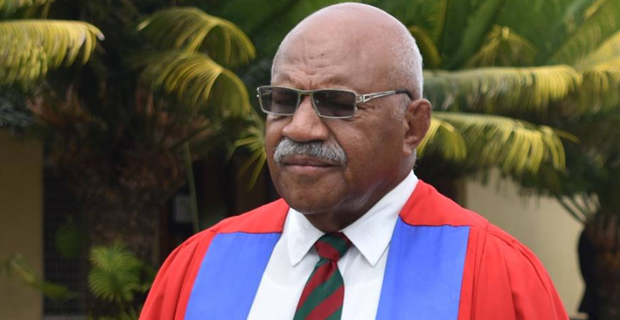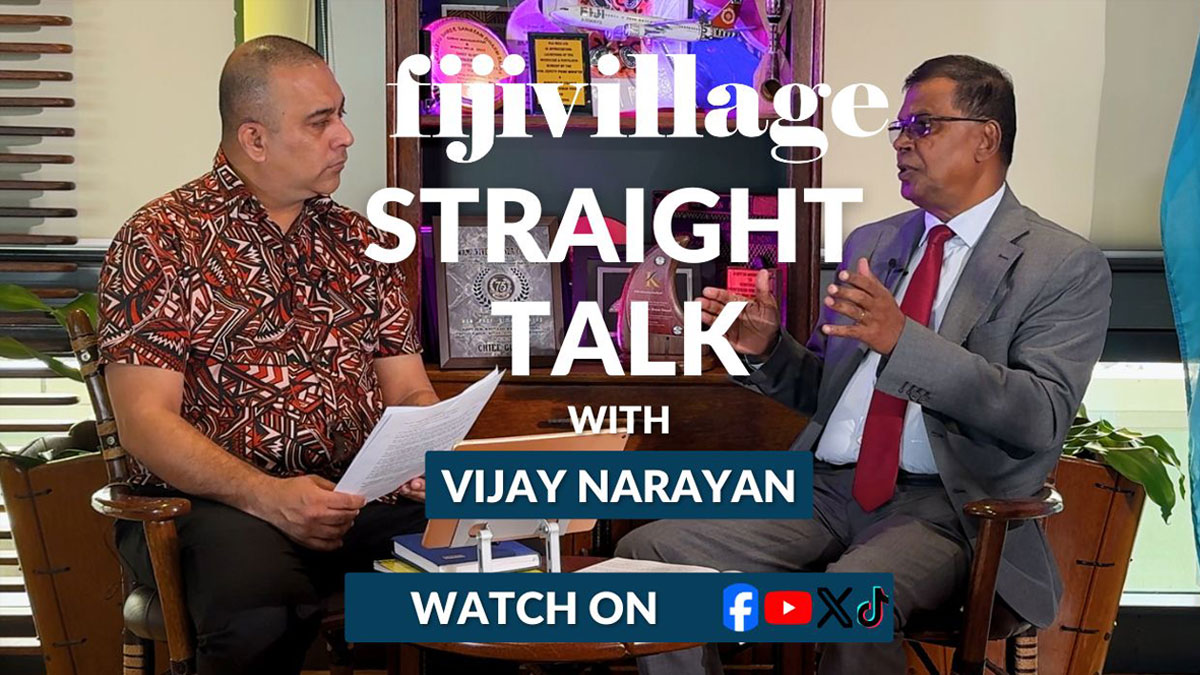
SODELPA Leader Sitiveni Rabuka says he personally has three reservations about the adoption in the 2013 Constitution of “Fijian” as our common name.
While speaking to law students at the University of Fiji, Rabuka said that firstly, according to him the people were never consulted.
Rabuka says the common name was imposed, just like the unilateral revocation of the 1997 Constitution and removal and abolition of the Great Council of Chiefs.
The SODELPA Leader says the people of Fiji have a right to be consulted and to be heard on this very important issue.
Rabuka says secondly, the 2013 Constitution, for the first time in Fiji’s constitutional history, has allowed a Fiji citizen to hold citizenship of a foreign State simultaneously.
He says this dual nationality is a good thing in the context of our globalised world but Rabuka says it creates the dubious situation about a person’s patriotic loyalty and attachment to Fiji when one is at the same time the national of another State.
In Rabuka’s view, the common name of Fijian in the Constitution ignores the group rights and self‑determination of indigenous iTaukei and Rotuman people.
He says these group rights had been recognised from the outset of British colonial administration of Fiji following the Deed of Cession between the British Crown and the High Chiefs of Fiji on 10th October 1874.
Rabuka says that ethnic, religious and linguistic minority community rights are not group rights as they are individual rights enjoyed and exercised collectively with other members of their respective community.
However he says our ethnic, religious and linguistic minority groups will be interested to know that the Human Rights Committee, the oversight body that monitors the implementation of the International Covenant on Civil and Political Rights, has broadened its interpretation of ethnic, religious and linguistic rights of minority communities to include the ability of each community to maintain its culture, language or religion.
The SODELPA Leader says it has also called on States to introduce positive measures necessary to protect the identity of a minority community and the ability of its members to enjoy and develop their culture and language and to practice their religion.
He says to him, what is unacceptable in the approach taken by the Bainimarama government in the formulation of their 2013 Constitution, is their founding presumption.
Rabuka says the government presumed that there can be a clear separation, on the one hand, between the State of Fiji as a political community of culturally un-differentiated individuals and, on the other, Fiji as a multi‑ethnic, multi‑religious and multicultural society.
The Leader of SODELPA says as part of the new political culture, all citizens of Fiji are to be called “Fijians.”
He says the only justification given is that by granting common and equal citizenry as Fijians, this constitutionally imposed political identity will induce among the citizens of Fiji a greater sense of unity as a nation.
Rabuka believes nothing can be further from the truth.
He says an imposed political culture based on a “single all‑embracing national identity” is no different from cultural assimilation.
Rabuka says our different communities will feel more confident and secure about their future in Fiji when their ethnicity, religious faiths and cultures are publicly acknowledged by the State and given equal protection and treatment.
SODELPA will review the constitution
A SODELPA government will review the Constitution.
SODELPA Leader Sitiveni Rabuka has made it clear that in the event SODELPA wins the majority number of seats in Parliament in the 2018 General Elections, he will resume the work that he and Jai Ram Reddy started in the 1997 Constitution.
While speaking to law students of University of Fiji, Rabuka says that this is to develop in full consultation with the people of Fiji, and with an all‑parties consensus decision in Parliament, for a review of the 2013 Constitution.
Rabuka says the purpose of such a review is to ensure that the Constitution genuinely reflects the wishes and the aspirations of “We, the people of Fiji” and that it is broadly acceptable to all the communities.
Any changes to the 2013 constitution requires 75% of support of members in parliament and 75% of support of the total number of registered voters in Fiji through a referendum.
Stay tuned for the latest news on our radio stations

